Ita Buttrose: ‘I’m not here to make friends with politicians’
Ita Buttrose has opened up about the secret to her success after more than five decades in the Australian media spotlight. And at the age of 80 she is showing no signs of slowing down.
Stellar
Don't miss out on the headlines from Stellar. Followed categories will be added to My News.
From liberating women in the 1970s to explore work, sex and self in the pages of Cleo to steering the ABC through our current divisive political times as its chair, Ita Buttrose remains decisive, daring and ever dedicated to her craft. Reflecting on her 65-year career in the spotlight, the venerable journalist, TV personality and media executive, now 80, reveals the plain truth of her success to Stellar: “There is nothing I don’t love about this business”.
Stellar: You celebrated a milestone birthday earlier this year in turning 80. Back in 2013, just as you were about to begin anchoring several hours of live television a week as the co-host of Studio 10, I asked you why, at a time of life when most people scale back their work commitments and are enjoying the more leisurely pace of retirement, you were doing the complete opposite. As we sit here nine years later, you’re the chair of the ABC. So dare I ask again if you’re ever planning to slow down?
Ita Buttrose: I have slowed down a little bit. I mean, it might not look like it, but I don’t do quite as much as I used to.
But no, I don’t see me slowing down. I don’t want to slow down – I like my life, I like being chair of the ABC, I like working.
I still challenge my brain, I still do physical exercise; I go to a gym twice a week and I’m just looking at how I can fit a bit more in because I think the more you use your body, the better your chances of ageing well.
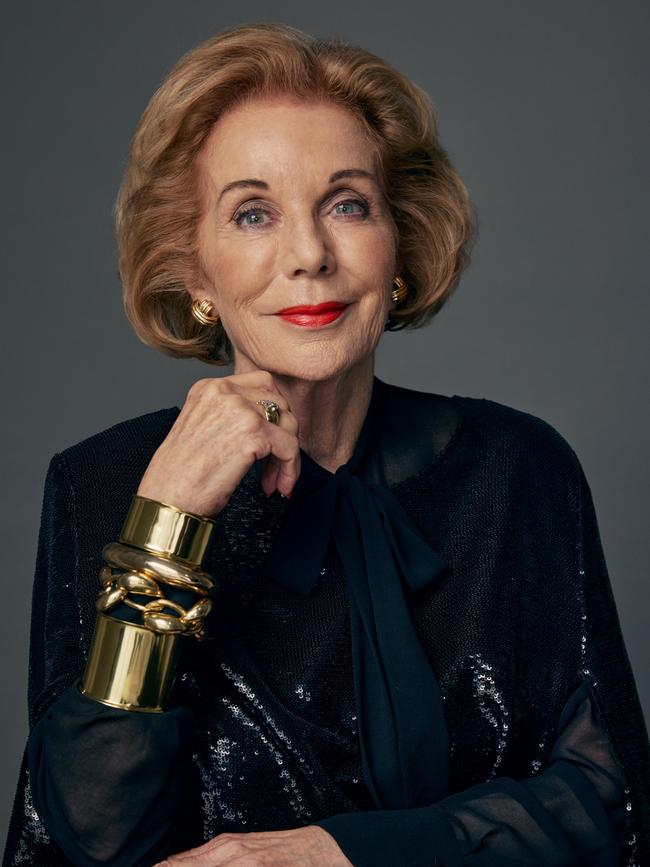
S: You’ve long been influential in the lives of Australian women, so are you conscious of being a role model by continuing to work and remain visible later in life?
IB: You think, well, are we an ageist society? Yes, I think we are still. I mean, you listen
to people talking about a shortage of workers; well, what is the problem with employing older people? It’s people’s prejudice against older people.
You hear it all the time: “Oh, they can’t be retrained.” “They’re too old.” That is all wrong. There’s plenty of evidence from overseas that shows older people can be retrained, they do adapt to technology, they’re very keen to learn new skills.
And if you train them correctly, they’ll turn out to be fantastic workers. They take fewer days off than younger people and they don’t spend all day sending text messages on their telephone.
S: You were the youngest ever editor of The Weekly [Buttrose was appointed editor of The Australian Women’s Weekly in 1975]. Now, at 80, you’re likely one of the older people working at the ABC. In which position have you faced more prejudice or misconceptions about your abilities based on age? Do you ever find there are younger staff who think dismissively, “Oh, no-one older than me could possibly know what’s what”?
Well, it’s folly if they think like that. [Pauses] I think it’s harder to be the younger worker with the older people. And I was very aware when I went to The Weekly that I was young. I had a few runs on the board, but my word, I had a lot to learn.
I was very respectful to the older workers; I knew they were feeling nervous that I might come in and make them redundant, and that wasn’t my plan.
Everybody was called Miss and Mr and Mrs – there was no first-name familiarity – so I went around to all the older people and I said, “Miss Bowden? Now that I am editor, would you mind if I called you by your first name?”
I went around and asked their permission to call them by their first name. It’s only a small thing, but I think it showed them, and I hope it showed them, that I respected them.
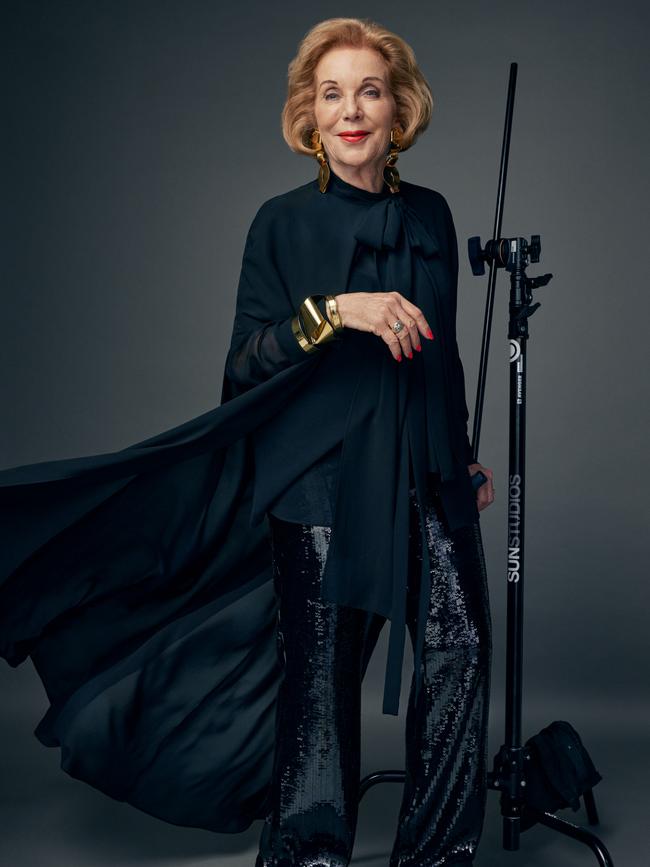
S: Queen Elizabeth II worked right up until she died at the age of 96. What was your personal reaction to the Queen’s death?
IB: Well, it was like something that had been in our lives for a long time had gone. But, oh my word, she put in such a fantastic effort.
And I was covering the wedding of William and Kate for Nine [Network] with Tracy Grimshaw [in 2011] and I watched the Queen and Prince Philip arrive – and he was ramrod straight; he had wonderful posture.
And I looked at these two older people and I thought, they have to be the world’s best example of older people working anywhere in the world. They were amazing, the pair of them.
I’m not surprised she died within a year of his death. That often happens in a long relationship. But if the world was going to learn anything from the Queen, it is how important resilience is. And I think resilience is sadly lacking in many people.
S: Putting your royal commentator hat on, what do you think will happen next? Will Charles becoming King Charles III pave the way for Australia to become a republic?
IB: I wouldn’t be surprised if we did but I think the challenge to us in Australia is that we don’t quite know what we want.
I mean, if we’re not part of the British Commonwealth in the sense of the King as the head of state, what kind of republic do we want? I don’t think we’ve really thought this through.
But to go back to King Charles, he’s waited a long time to get this job. He’s been trained by one of the best in the world.
The Queen had to impart a lot of wisdom and knowledge to Charles, so he might just prove to be the right monarch at the right time in this period of the world’s instability.
So it will be very interesting to see what he has to say and how he says it.
S: You were appointed ABC Chair in early 2019 by then prime minister Scott Morrison; now we have a new PM in Anthony Albanese. The national broadcaster is always a political lightning rod and there’s a perception it’s easier for the ABC under the ALP than the Coalition. What are your thoughts on that assessment?
IB: Well, it’s not easy for the ABC under any government because we seem to have the knack of upsetting governments quite heavily.
Sir Robert Menzies complained about the ABC. I think John Howard complained about it at one stage. Paul Keating did; Bob Hawke did – I mean, you name it … But that’s what living in a democracy is all about.
We’re the national broadcaster and you can’t be hampered by any political persuasions on how you might cover a story. You just have to cover it.
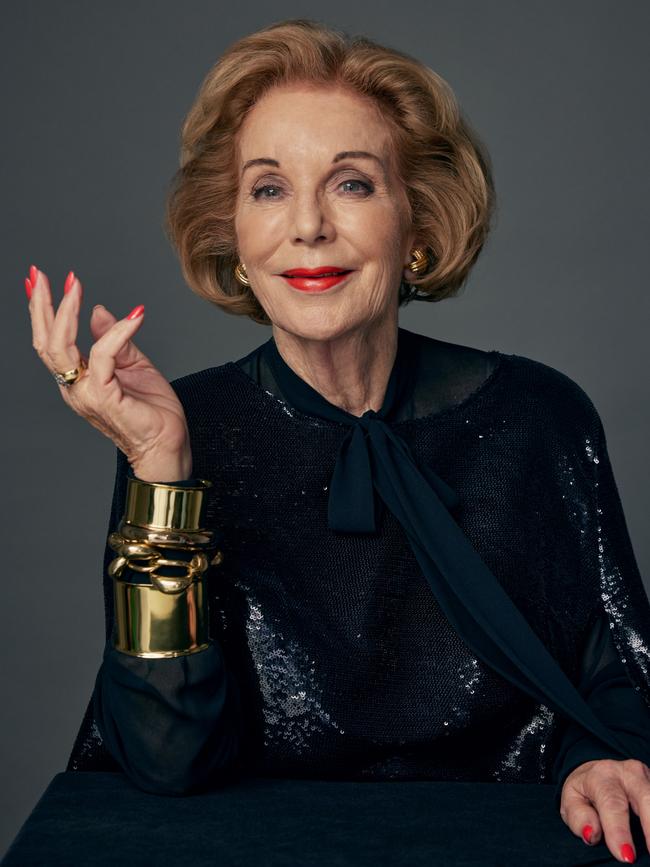
S: As you know, there are always high-profile critics of the national broadcaster. Last year, for instance, Liberal Party powerbroker Michael Kroger labelled your leadership of the public broadcaster a “terrible failure” over what he said were biased programs. How do you handle those sorts of accusations?
I’m not there as chair to be friendly to any political party.
And my role as chair is to run the ABC, to run it to the best of my ability to make sure it’s secure, is heading to the right future, that our employees are committed to public broadcasting – which they are – and to maintain the trust of the Australian public, because, after all, they fund us.
That’s my role. I would hope I do it with integrity. I don’t think it’s necessary to badmouth me because I haven’t been friendly to a particular side of politics – I’m not supposed to be friendly to anyone in politics.
I can be respectful. But I’ve always thought journalists need to be apolitical. We’re meant to be unbiased.
We’re meant to be able to deliver both sides of the story and let the public decide. We’re meant to deal with facts and not opinions.
The moment we started dishing out bylines as though everyone had an entitlement to an opinion, we opened the floodgates to opinion journalists. And I don’t mean the ABC by that – I mean the profession generally.
S: In making the transition from journalist to an executive, do you miss – to use the current lexicon – being a content creator?
IB: Oh, yes, I do. Because I don’t think you switch off. I’ve spent my whole life coming up with ideas, seeing stories …
And sometimes I do say to the managing director, “You know, there was an interesting interview last night and somebody said this. Interesting, don’t you think?” I don’t say, “You must do it.”
I just leave it there. It’s not my job. And that’s really difficult for me because you can’t switch off years of training.
S: What about live TV?
IB: I love live TV. You know, if you said to me, “Look, next year, we’re going to give you a TV show,” I’d say, “Really? I’d like to have a look at that.”
I wouldn’t mind being back on radio. I love it. There is nothing I don’t love about this business.
S: You’re a champion of more women on boards. But as a female chair, you’re still in a minority in this country … There is an improvement among the representation of female directors, but the female chair?
IB: They’re still not plentiful. But the male network is very strong. We just can’t underestimate it.
Those women who want to be chairs need to push themselves forward. And we’re not good at that. We’re not good at doing that when we’re lower down the ladder and it looks to me like we may not be good at that when we’re on the way up a higher part of the ladder.
So even those very talented, experienced women who would like to chair a company need to say, “I think I can do a better job.”
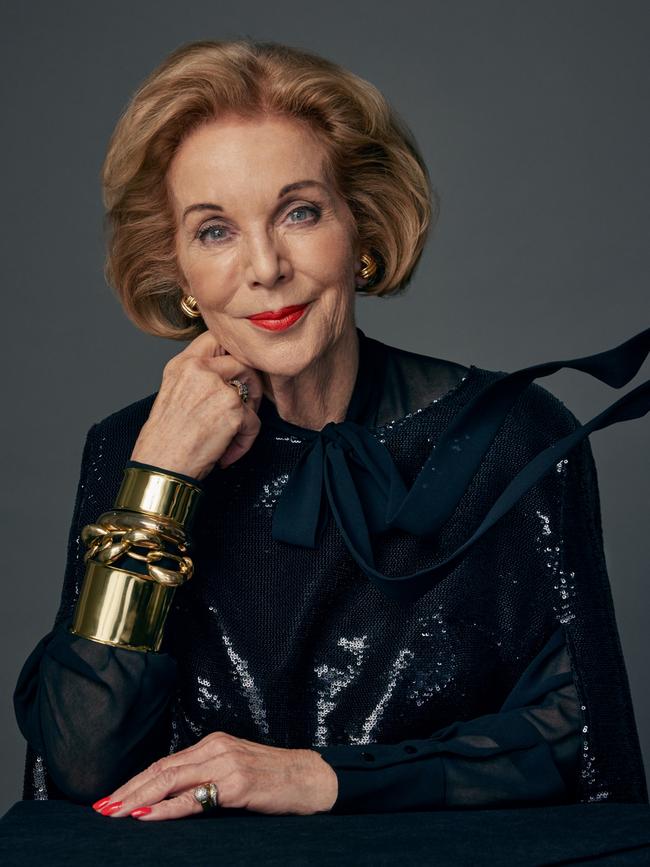
S: You have been a household name in Australia for so long – and solo name status at that. How does that feel?
IB: It’s quite humbling, really. But you’re right. I have been a household name for such a long time. And if you’re going to be well known, this is a very good country to be well known because everybody’s friendly.
I can be walking in the park and someone will say, “Oh, g’day, Ita,” or they might give me some advice about the ABC or they might say something about my kids.
My grandchildren find it a bit odd sometimes [Buttrose has five grandchildren, Elyse, Clare, Jack, Byron and Samantha].
My granddaughters are now 13 and 14, but when they were about eight and nine, they’d say, “Grandma, are you famous?” And you’d say, “Well, sort of.” And then I found one of them saying to somebody in Woolworths, “My grandma is famous.”
S: Your children, Kate and Ben, also grew up with that, didn’t they?
IB: Well, they did. But they don’t have the same surname as me. I made sure they were never photographed and I stopped writing about them when they were in their teens.
I wanted them to have as normal a childhood as possible and not for me to overshadow the normal childhood things.
S: The last time I interviewed you, I asked if you would consider getting married for a third time, and you said it had crossed your mind but no-one had asked. Surely somebody read that and in the years since thought, oh my gosh, I’ve got to ask! [Laughs]
IB: I’m afraid not; the situation hasn’t changed and nobody has asked me. And I really don’t think it’s going to happen.
I’m a romantic – and even I don’t like my chances. But look, I’m quite happy living my own life. You just take where life leads you. And if it surprises you, it surprises you.
S: This month will be 50 years since you launched Cleo magazine. If it were still being published, do you think there would be a place for a male centrefold in 2022? And if so, who would you nominate?
IB: Well, there’s always time to admire a beautiful male body, and so you might do one for nostalgia.
God knows who … I was looking at Roger Federer and his farewell match with Rafael Nadal and I thought he’s still gorgeous. My God, he’s gorgeous … I think I would try to talk Roger into doing it.
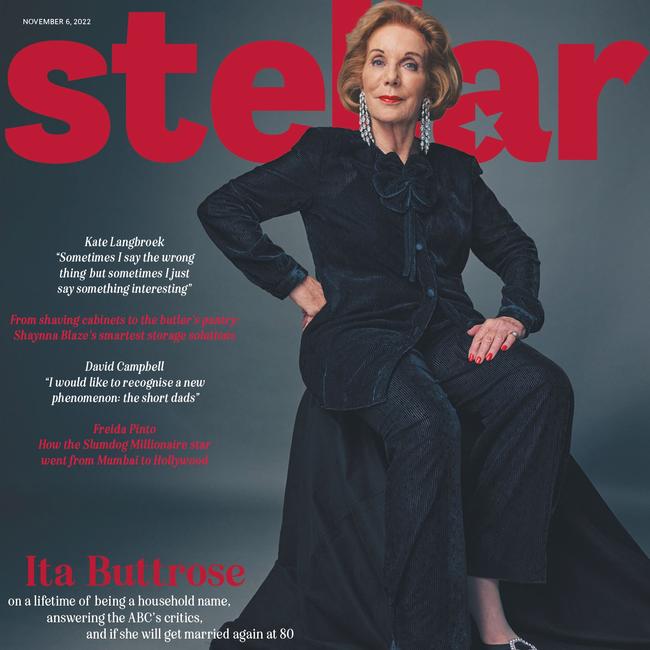
S: And on the topic of anniversaries, the ABC has just turned 90. Will you still be chair to ring in its centenary or do you have other things you still feel you have left to achieve?
IB: [Laughs dryly] I don’t think I’ll still be running the ABC when it gets to 100. I mean, I might actually consider going off to write a new book or something like that.
I don’t know what else there is for me to achieve. I’m quite happy with what I have achieved, but many of the things that have happened to me have been unexpected.
This role was unexpected. So you have to keep your options open because you don’t know where life will lead you.
I’m an adventurer and I’m an optimist, so I go forward, always hoping for the best.
More Coverage
Originally published as Ita Buttrose: ‘I’m not here to make friends with politicians’




